Four teammates work together diligently. Hands ready on their buzzers. Eyes concentrated on their moderator. This is the scene of a Scholar Bowl tournament where students delve into the world of academic competition.
Scholar Bowl is an activity where two opposing teams of four players each compete to answer questions individually and with their teammates. A typical Scholar Bowl tournament would take place on a Saturday at the high school that was hosting it. There would be a moderator to read questions from a canon—question bank—and competitors that ‘buzz in’ to answer them. However, due to COVID-19, all aspects of the tournament were translated into a virtual format.
“When I joined [Scholar Bowl] I knew barely anything other than the stuff that I learned in my classes. So there’s the gratification of learning,” junior and Scholar Bowl member Kevin Zheng said. “A lot of the questions were way harder for me than they are now. It just feels very nice that you can buzz in as the moderator says the first three words of the question, and you know the answer right away. It feels so good.”
Students in the club practice on Protobowl, a website which automatically generates questions in all categories: mathematics, science, social studies, communication arts, fine arts or performing arts and a miscellaneous category.
“We have what we call Protobowl Sundays, extra practices on Sundays which are optional,” junior and Scholar Bowl co-Captain Anna Csiki-Fejer said. “I feel like [one] thing to stress is, whatever method of studying or learning that works for you is what we encourage. So some people might want to read articles to learn, some people watch videos, some people listen to podcasts. We do our best to gather that wide range of media, and then if anyone wants to get better on something but doesn’t know how to, we try to help them figure out what method works best for them.”
There are two types of questions, toss-ups and bonuses. Toss-ups are questions where competitors race to see who gets the answer correct first. Bonuses, on the other hand, are three additional questions that are presented if the competitor gets the toss-up correct.
“One of the things we place emphasis on is even if a toss-up goes bad, or you don’t know the answer, it’s always going to be better to give an educated guess than no guess at all. And even if you’re wrong you’ll know the answer once they tell you. So there’s always room for growth and improvement in that sense,” Csiki-Fejer said.
Given the large amount of potential questions, preparation for a tournament can take a substantial amount of daily practice. Students in the club, however, enjoy the opportunity to expand their knowledge.
“One of the reasons why I think [Scholar Bowl] is really important right now is that it gives me something to do. Besides school and sleeping, it’s what I do most of the time. It’s kept my brain active during this year, and kept me from doing nothing of value,” sophomore and Scholar Bowl co-Captain Owen Arneson said.
As with most clubs and activities, Scholar Bowl transferred to an entirely virtual format this year. For Arneson, who has been participating in tournaments since the start of middle school, competing online brought unfamiliar challenges.
“Sometimes, the team part is harder to do [virtually] because you can’t confer privately with your team,” Arneson said. “It is really unfortunate when you cut out during questions—you can’t answer. That’s really like the hardest thing that happens. There’s some cutting out and some timing issues, but it’s been adapted pretty well.”
Despite the competitive nature of the club, the team is very close-knit and look forward to practicing with each other.
“During practices lately, our host Mr. Troy has been changing our Zoom names into nicknames that either rhyme with our name or just [to] puns based on who we are, fun stuff like that,” Csiki-Fejer said. “And honestly just having practice after a day of sitting on Zoom is a really good way to relax, so having that is pretty nice.”
The club works to create a light-hearted atmosphere at their practices. For instance, three days prior to the Washington University High School Academic Competition (WUHSAC), team members read packets to each other over voice chat—with a twist. They decided to implement penalties. Due to these penalties, in the span of two hours, Zheng made Arneson do 120 push-ups and 150 squats.
“We did this challenge where we would go head-to-head against a different person, and if the other person got the question we would have to do a certain exercise. And I got beat pretty badly, so I was very sore for the next few days,” Arneson said.
While the team practices frequently, they prioritize learning and having fun over intense and rigid studying.
“If there’s a tournament, I would generally spend as much free time as I have basically, so anywhere from three hours to six hours, on Protobowl,” Zheng said. “Protobowl’s fun because there’s voice chat, and you just hang out with a bunch of friends. And then other times we spend one or two hours reading questions [and] packets to each other. We [can] spend 30 minutes just Google-ing something if we don’t understand.”
Csiki-Fejer, who is co-Captain of the club with Arneson, reflects on practices this season and the objective of the club.
“We’re here to have fun, and it’s not meant to be a super intense, competitive atmosphere. For practices, we’re really just focused on playing to our best and improving. That’s what we emphasize instead of who gets more points or who missed what question,” Csiki-Fejer said.
Getting creative with practices, competing strongly at tournaments and overall learning a lot has led the team to feel that this year was a success, and they look forward to closing it out at Nationals June 5-6.
“[The] thing about Scholar Bowl is, you don’t really need to know much to join. Sophomore year [was] my first time in the Scholar Bowl, and I got one question right out of 20,” Zheng said. “You gain experience over time and you start learning more about it. While there might be people who are more talented, you can always learn and you’ll eventually be as good as them. It’s all a learning process.”


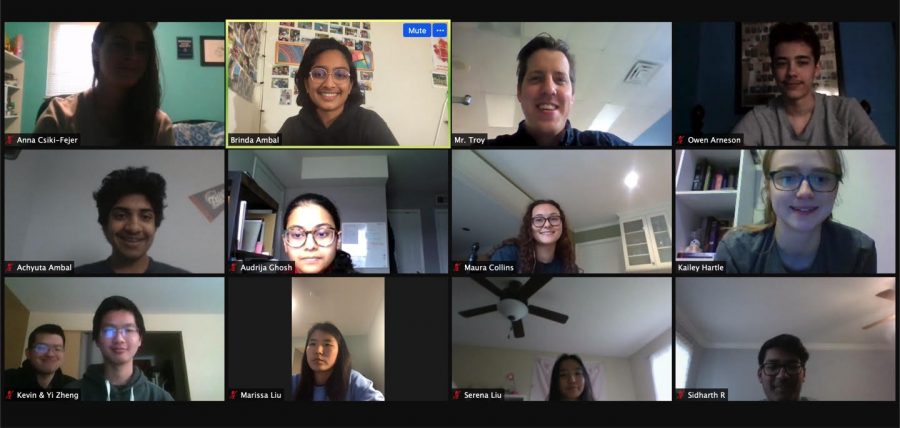
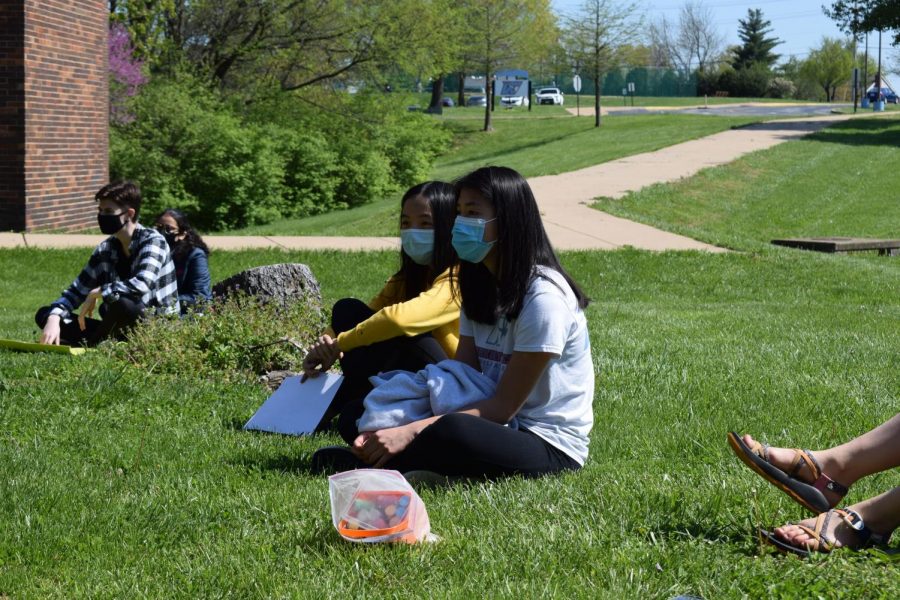
![Gazing up from the stage, junior Joseph McCurdy who played Peter Pan in the school play, Lost Girl, sits next to senior Juliana Rogers, who plays Wendy Darling, during a theater rehearsal. McCurdy’s passion for theater began when he observed a West High production in middle school. “I've been in the high school theater program since I was a freshman. I've always loved theater, but [what prompted me to join] was [when] I went to see [a performance here] when I was in middle school, and it was super cool,” McCurdy said.](https://pwestpathfinder.com/wp-content/uploads/2025/11/IMG_6535-1200x798.jpeg)

![Standing tall, stacked in a precise formation, the cheer team strikes a signature pose during halftime on Sept. 12 at the varsity football game. Nearly a month after this performance, the cheer team performed at the Missouri Cheerleading Coaches Association (MCCA) regional competition on Oct. 4, 2025. “We've all come [to] work together a lot more,” sophomore Elyssa Philippi said. “We're a lot closer than we were [earlier in the season] and going to state has made us closer [in] trying to work with each other, learn [new] skills and make our team better.”](https://pwestpathfinder.com/wp-content/uploads/2025/11/DSC5139-1.jpg)
![Handing out candy to excited trunk-or-treaters, President of the United Nations Children’s Fund club and junior Sara Ashok represents that group. Ashok was eager to participate in this event for multiple reasons. “I really wanted to be a part of the event because I get to help create memories for kids and spend time with my friends, spreading the things [I'm passionate about],” Ashok said.](https://pwestpathfinder.com/wp-content/uploads/2025/11/DSC_8648-1-1200x800.jpg)

![Smiling in a sea of Longhorns, Fox 2 reporter Ty Hawkins joins junior Darren Young during the morning Oct. 3 pep rally. The last time West was featured in this segment was 2011. “[I hope people see this and think] if you come to [Parkway] West, you will have the time of your life because there are so many fun activities to do that make it feel like you belong here. I was surprised so many people attended, but it was a lot of fun,” Young said.](https://pwestpathfinder.com/wp-content/uploads/2025/10/Edited2-1200x798.jpg)
![West High seniors and families listen as a representative of The Scholarship Foundation of St. Louis, Teresa Steinkamp, leads a Free Application for Federal Student Aid (FAFSA) workshop. This session, held in the library, provided guidance on financial aid, scholarships and student loan options. “This event is very beneficial for any seniors who are applying to or considering applying to colleges after high school [because] the cost of college is on the rise for seniors and parents,” college and career counselor Chris Lorenz said.](https://pwestpathfinder.com/wp-content/uploads/2025/09/DSC_4478-1200x778.jpg)
![Senior Kamori Berry walks across the field during halftime at the Homecoming football game on Sept. 12. During the pep assembly earlier that day, she was pronounced Homecoming Queen. “I thought it was nice that the crowd [started] cheering right away. I know [my friends] were really excited for me, and my family was happy because typically non-white people don't win,” Berry said.](https://pwestpathfinder.com/wp-content/uploads/2025/09/DSC7046-Enhanced-NR-1200x798.jpg)


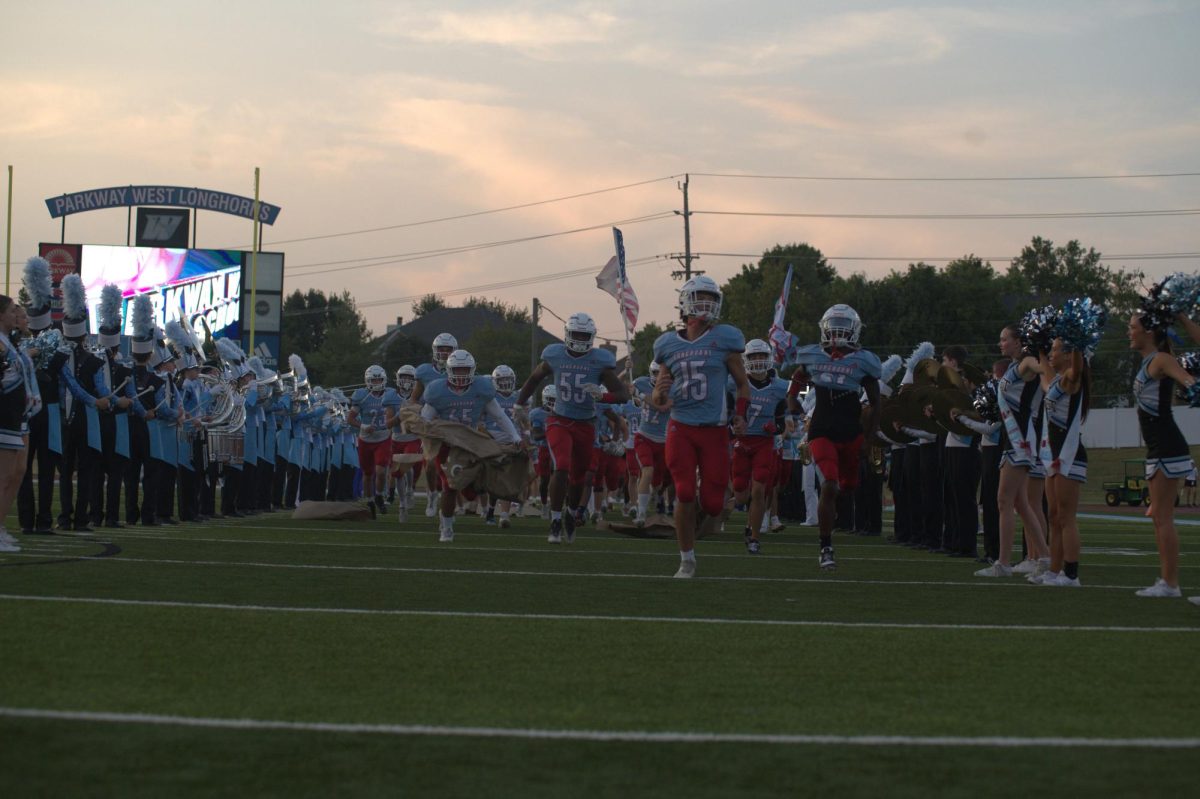
![Sophomore Shree Sikkal Kumar serves the ball across the court in a match against Lindbergh. Sikkal Kumar has been a varsity member of the varsity girls’ tennis team for two years, helping her earn the number two rank in Class 2 District 2.“When matches are close, it’s easy to get nervous, but I [ground] myself by[staying] confident and ready to play,” Sikkal Kumar said.](https://pwestpathfinder.com/wp-content/uploads/2025/11/DSC2801-1200x798.jpg)
![Dressed up as the varsity girls’ tennis coach Katelyn Arenos, senior Kate Johnson and junior Mireya David hand out candy at West High’s annual trunk or treat event. This year, the trunk or treat was moved inside as a result of adverse weather. “As a senior, I care less about Halloween now. Teachers will bring their kids and families [to West’s Trunk or Treat], but there were fewer [this year] because they just thought it was canceled [due to the] rain. [With] Halloween, I think you care less the older you get,” Johnson said.](https://pwestpathfinder.com/wp-content/uploads/2025/10/DSC00892-1-1200x800.jpg)
![Focused on providing exceptional service, sophomore Darsh Mahapatra carefully cleans the door of a customer’s car. Mahapatra has always believed his customers deserve nothing less than the best. “[If] they’re trusting us with their car and our service, then I am convinced that they deserve our 100 percent effort and beyond,” Mahapatra said.](https://pwestpathfinder.com/wp-content/uploads/2025/10/DSC_0018-1200x800.jpg)
![Sophomore Aleix Pi de Cabanyes Navarro (left) finishes up a soccer game while junior Ava Muench (right) warms up for cross country practice. The two came to Parkway West High School as exchange students for the 2025-2026 school year. “The goal for the [exchange] program is to provide opportunities for both Parkway students and our international exchange students to learn about other cultures, build connections and become confident, capable, curious and caring — Parkway’s Four C’s — in the process,” Exchange Program Lead Lauren Farrelly said.](https://pwestpathfinder.com/wp-content/uploads/2025/10/Feature-Photo-1200x800.png)
![Leaning on the podium, superintendent Melissa Schneider speaks to Parkway journalism students during a press conference. Schneider joined Parkway in July after working in the Thompson School District in Colorado. “My plan [to bond with students] is to get things on my calendar as much as possible. For example, being in [classes] is very special to me. I am trying to be opportunistic [meeting] kids [and] being in [the school] buildings. I have all the sports schedules and the fine arts schedules on my calendar, so that when I'm available, I can get to them,” Schneider said.](https://pwestpathfinder.com/wp-content/uploads/2025/09/IMG_5425-1200x943.jpeg)
![Gazing across the stage, sophomore Alexis Monteleone performs in the school theater. The Monteleone family’s band “Monte and the Machine” has been releasing music since 2012, but Alexis started her own solo career in 2024 with the release of her first single, Crying Skies. “My whole family is very musical, [and I especially] love writing [songs with them],” Monteleone said.](https://pwestpathfinder.com/wp-content/uploads/2025/09/DSC7463-1200x798.jpg)
![Leaping through the air, senior Tyler Watts celebrates his first goal of the season, which put the Longhorns up 1-0 against the Lafayette Lancers. Watts decided to play soccer for West for his last year of high school and secured a spot on the varsity roster. “[Playing soccer for West] is something I had always dreamed of, but hadn’t really had a good opportunity to do until now. It’s [really] fun being out [on the field], and I’m glad I decided to join the team. It’s just all about having fun with the boys and enjoying what time we have left together,” Watts said.](https://pwestpathfinder.com/wp-content/uploads/2025/09/DSC_1951-1200x855.jpg)

![Shifting global trade, President Donald Trump’s tariffs are raising concerns about economic stability for the U.S. and other countries alike. “[The tariffs are] going to pose a distinct challenge to the U.S. economy and a challenge to the global economy on the whole because it's going to greatly upset who trades with who and where resources and products are going to come from,” social studies teacher Melvin Trotier said.](https://pwestpathfinder.com/wp-content/uploads/2025/05/MDB_3456-1200x800.jpg)
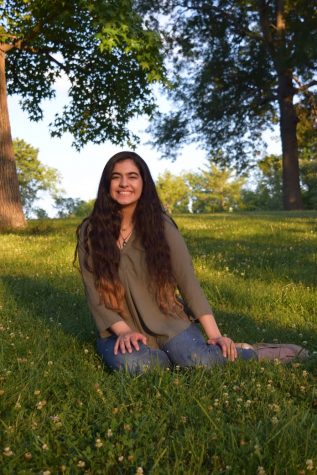
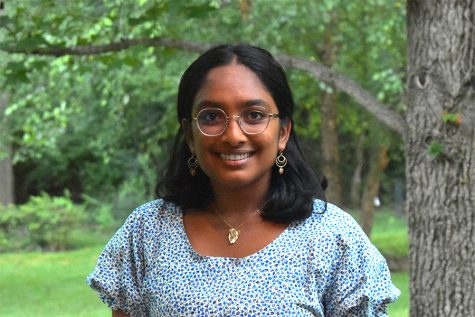
Patrick Troy • May 12, 2021 at 9:51 am
Great story! Working with these kids is one of my favorite parts of this strange year!